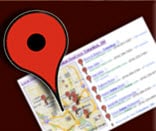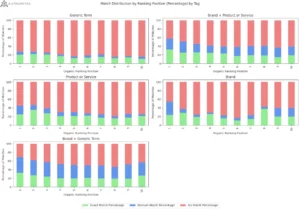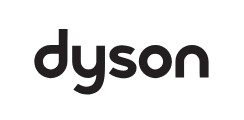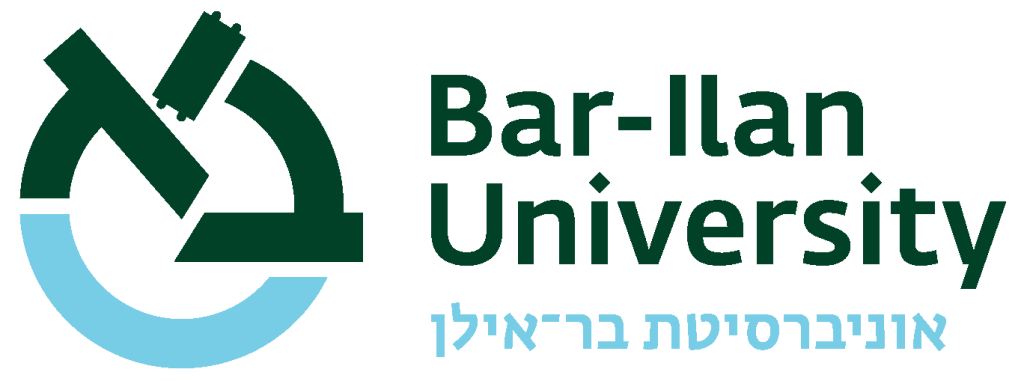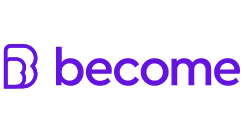Are you a local business looking to get more widely known in your area? Consider how your potential clients reach you. Many of them probably search on a Google for keyword relevant to your field plus the relevant town or neighborhood – “hostelDublincity center”, for example.
Now, assuming that you are not the only business of your kind in your town, how can you make sure your business appears way up high in Google’s search results, even higher than your competitors? What if you don’t have a website, but you still want to appear on local searches? Well, guess what – it’s time for some local search engine optimization.  Image credit: thinkjudd
Image credit: thinkjudd
WHO needs local SEO?
Obviously, local optimization has benefits for local businesses that want to advertise themselves locally. Basically, any business that has a physical address and gets many local clients should seriously consider local SEO. Surprisingly, one does not even need a website to do local SEO: as long as the business details can be easily found on local portals, online directories, business indexes, etc., the business could easily pop up on search engines when conducting a local search.
WHY use localized SEO?
Consider the following data, found in this report by Webvisible & Nielsen: a staggering 82% of consumers and local business owners use search engines to look for local information, while 53% use local newspapers, 49% use TV and 38% use direct mail. And these were the figures for 2009 – you can only imagine what they are today! Plus, even if searches are not local (just “graphic designer” instead of “graphic designer Brooklyn”) most search engines first list some local results in your area before the general results. Therefore, local SEO is certainly a wagon that you want to jump on – and the way to do so is by getting citations and local listings.
WHAT are citations?
A citation is a mention of your business on other websites (online directories, for example, but also personal websites like blogs), which includes details such as the name, address and phone number of the business. Ranking algorithms of search engines rely highly on citations, which means that the more citations a business has, the higher rankings it will get on search engines. Moreover, the more citations that appear on trustworthy, well-known sources, the easier it is for search engines to verify the details of your business and to better categorize it.
In this useful video Brodie Tyler provides a short, clear explanation of what citations are and why you need them:
https://www.youtube.com/watch?v=BoJOGSjkpyY
HOW do you get more citations?
How do you get more local traffic to your website? How do you increase the chances that your website will rank up higher on local search results? There are a several practices you should adopt:
- Create a local profile on search engines global and local, as well as on online directories, local business portals and portals related to your field. These local profiles should include the name, address and phone number of your business (commonly known as “NAP”), as well as link to your website if you have one. To make your profile even more dominant, noticeable and traffic-attractive, also include photos, videos, and reviews of your business. For a list of the top websites you should register to and create a business profile, scroll down to “Where”.
- Display your location and contact details on your website – a great way to do so is by creating a footer that appears on every page of your website and includes these details (your phone number, address, zip code, area code, etc.)
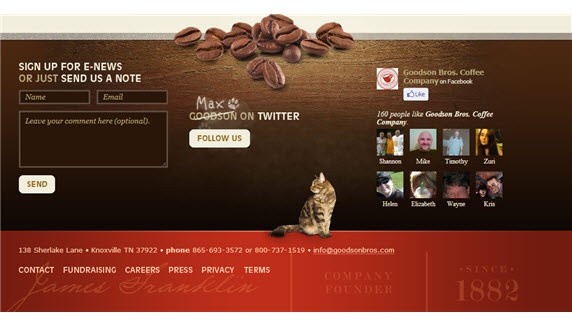 Check out this great footer from GoodsonBros!
Check out this great footer from GoodsonBros!
- Connect your business info with your online mentions – Issuing a press release? Appearing in an online interview or an article about your business? Make sure you can be found easily by providing your location and contact details, as well as a link to your website, in these types of mentions.
- Get reviews – encourage your clients to give you reviews. They can give you a review on their own websites or blogs, or on your business profiles on search engines and local search platforms.
- Add your business to local directories – We have recently launched a new service that does that for you and saves you precious time. In the process of submitting your business to local directories, we take care to make sure that it isn’t already listed there. If it isn’t listed we accurately fill out all the details that have been given us by the client. In addition, since we are committed to high standards of service, we only submit businesses to the highest-quality directories. You can try out our local listing service.
WHERE should you be listed to get more citations?
- Google Places for Business – Getting a listing on Google Places is the first thing you should do. Your ‘Google Places’ page will include a map and your contact details, as well as anything else you’d like to add, such as photos, videos, coupons and updates. This guide by Google will take you through the process step-by-step.
- Google+ Local – This is considered the new and improved version of Google Places, which allows you to conduct local searches on Google+. Finding local information has been simplified on Google+ by the addition of the “Local” tab.
Besides a map and photos, Google+ Local also incorporates a Zagat recommendation (useful for the businesses in the dining industry) as well as reviews from Google+ itself, which are based on user reviews. This helpful article by HubSpot will tell you all you need to know about Google+ Local.
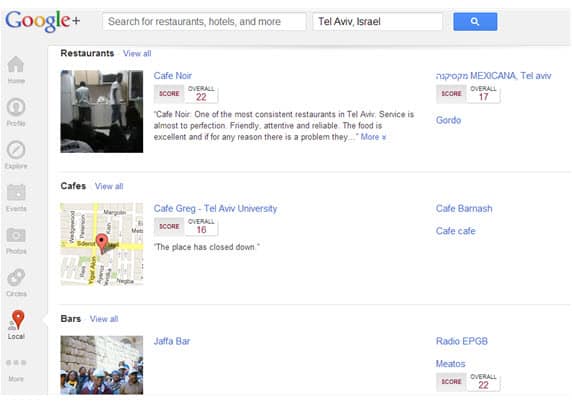
- Google Maps – Google Maps is Google’s mapping application which helps with locating a specific place, business or address and includes such features as driving directions and street navigating with Google Street View. Listing your business on Google Maps will help people find your business more easily by providing its exact location on a map. Adding your business to Google Maps also enable you to includes such information as opening hours, types of payment accepted, etc. As you can see above, your location on Google Maps is also incorporated in the other types of Google listings.
- Bing for Business – A service provided by the search engine Bing on which you can register your website along with the business’ local information in order to appear on local searches and on Bing Maps, in a similar manner to the Google services listed above.
- Yahoo! Local – Yahoo! Local listings include the option to browse businesses by category or by city/state, and the service also provides a constantly updating stream of recent reviews of businesses near you. Search results can further be filtered by neighborhoods and sub-categories. A basic listing of your business is free and includes operation information (opening hours, payment methods), services provided and products sold as well as a link to the website. An enhanced listing, which you have to pay for, allows use to use some more features such as uploading photos, and adding more website links.
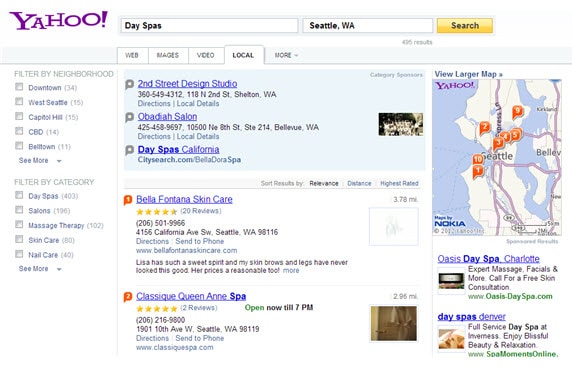
Searching for day spas in Seattle on Yahoo! Local.
- Superpages.com – this is a service which includes a directory, as well as city guides, comparison shopping, user reviews and maps. A business can register and build a business profile that includes contact information, a link to its website, a map, an email address, driving directions, etc. It also enable searching by categories (for example, ‘nail salons’, ‘cleaning services’ and ‘massage therapists’, three of the popular categories that appear on its homepage).
- CitySearch – a US-based service, City Search features two search boxes, one for businesses and one for cities/states/zip codes, allowing you to specify your search to a business category in a specific city or area. The service prides itself on employing expert “Scouts” (for example, food correspondents) who give reviews and ratings to the businesses in their cities and neighborhoods. Each listing provides a CitySearch Score, a map, the option to recommend a business by giving a thumbs-up or a thumbs-down, as well as options like viewing the menu or making reservations (for restaurants or cafes).
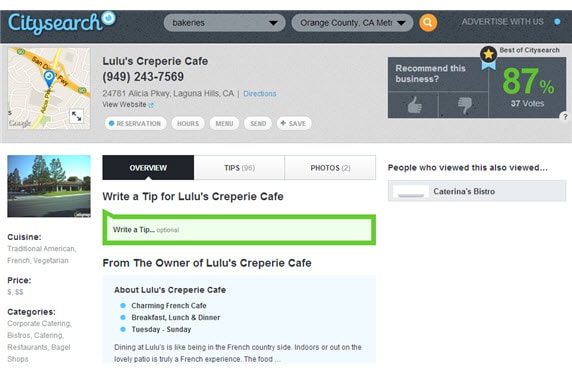
A business profile on CitySearch.
- Local.com – Another US-based local search service, Local.com boasts of a database including 16 million business listings in every zip code in theUnited States. On Local.com you can search not only for businesses but also for deals, events and activities. You can browse top categories such as food, wellness and finance and find listings of businesses near you as well as articles on related topics.
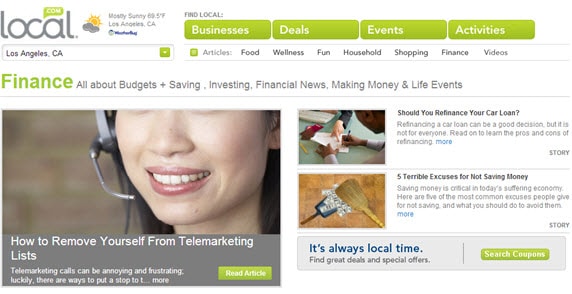
The ‘Finance’ category page on Local.com
- Yelp – Yelp is a combination of a social network and local search engine. Besides including common features such as a map, contact information, opening hours, directions and reviews for local businesses, it also operates like a community in which users can see which other users are the most popular contributors and find users who share similar interests. The business owners themselves can also contact contributors by a messaging system. To see what a business page on Yelp looks like we searched for bookstores inCork,Ireland:
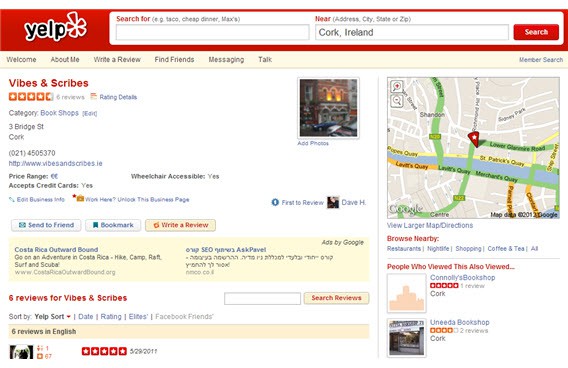
- Yext – Yext does not actually provide search options, but is rather a mega-engine of local search engines, which synchronizes a business’s listings on the dozens of different websites. It enables business owners to upload their information only once, and have it spread to the other websites by the ‘PowerListings Hub’. Websites in the Hub include, among others, Yahoo!, Yelp, Foursquare, CitySearch, WhitePages. One of the features offered by Yext are tracking local search performance – analytics on the traffic your listings generate.
- WhitePages – On WhitePages you can search both for people and for businesses. Since WhitePages is one of the partners of Yext, listing your business on WhitePages means it will also be available on other Yext partners such as Yahoo and CitySearch. Search options on WhitePages also include searching by reverse phone (writing a phone number and finding which business it belongs to) and searching by address and neighbors. The WhitePages homepage also includes a convenient Store Locator to find popular stores and chains near you, as well as the options to search by city and by category.
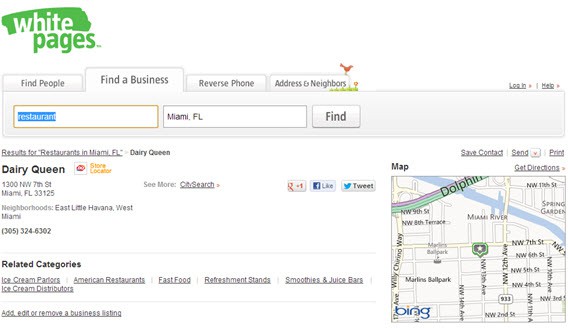
Listings are basic, but link to the business’s profiles on other local search engines (here, CitySearch) for more information.
That’s a long list, but guess what – especially for you, we have compiled a large pool of high-quality local directories which we update regularly (which includes the one mentioned here).
Which online service can help you with all of this?
Your thoughts?
What is your experience with local searching? Do you have any tips on citation building? Do you any more websites that businesses could get listings on? Please share your knowledge with us!
